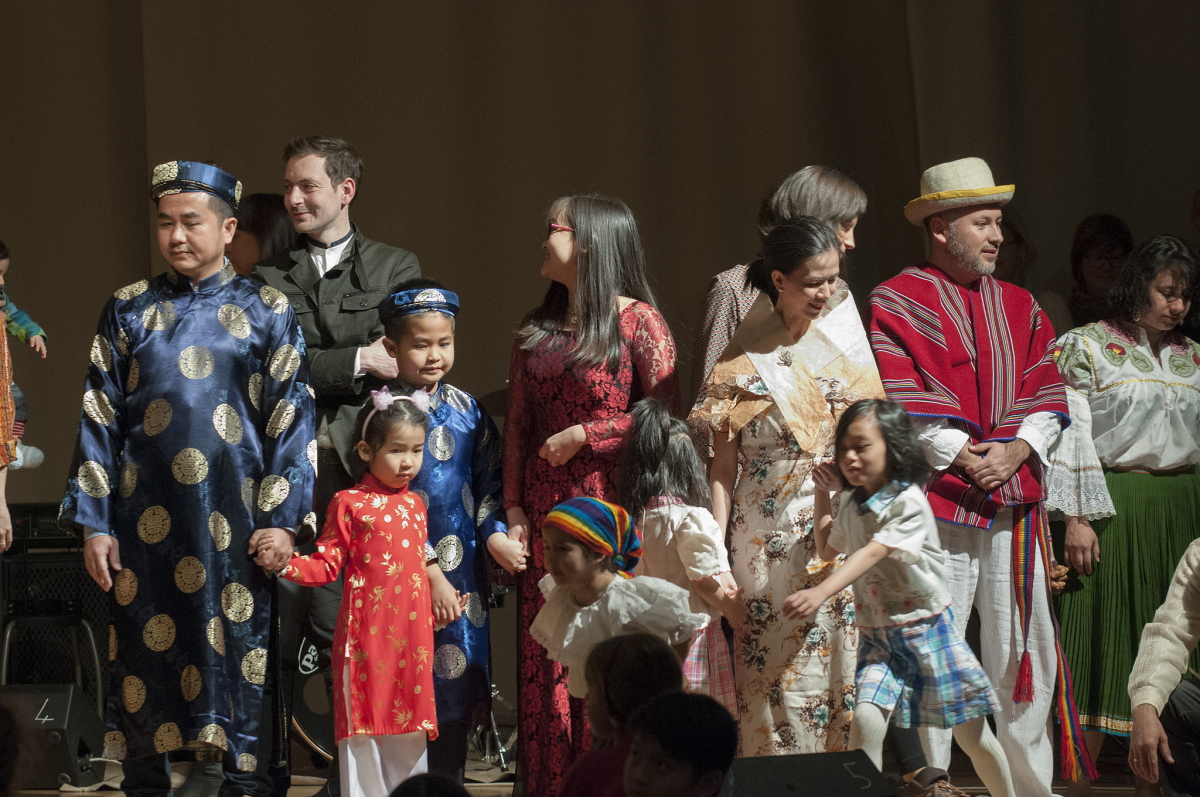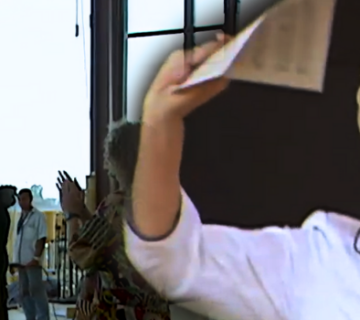“You are entrusting the family with an explosive mission, a reform that families can initiate in the world” – these were Igino Giordani’s words to Chiara Lubich in 1967, when she founded New Families, a branch of the Focolare Movement. After fifty years, precisely on the ninth anniversary of the founder’s passing away, the branch that blossomed from that seed manifests itself in the various events and initiatives in many cities worldwide. That prophecy has found ways and means to become a reality.
More than a thousand people, of all ages, coming from 50 different countries, participated in the three-day Loppiano event. They were mainly Christians but there were also Muslims, Buddhists and Hindus. The fruits of a story were visible in the interaction between the different generations: grandparents, children, grandchildren. The live-streamed programme, translated into 19 different languages, was based on three main themes: the family, a net of relationships; love as a response to critical situations in the family, and the family, a creative resource for all humanity.
Parents and children shared their experiences. A teenager shared her suffering and that of her younger siblings and family caused by their father, a victim of alcohol. She transmitted hope that came from sharing. “The family is the most important thing”, she said, “and we must not be afraid to take the first step. It may be hard to do so, but if it is done out of love, it can cause change”. A couple related all about the search for their “prodigal” son, who destoyed the family business, entered into big debts and fled from the country. Their pain was excruciating but they realized that mercy had to win over anger. They decided to set off in search of their son until they found him. Their embrace meant the beginning of his new reconciled life. Basma, a Muslim and Tatiana, a Christian went up on stage together and related how they built a very strong sisterly bond between them by sharing the ups and downs of everyday life after Basma’s husband died and she found herself alone in a foreign country, with two children and without support. Their story spoke of the encounter of peoples and indicated that it is only through mutual acceptance and hospitality that peoples can become a family of families.

In her address to the participants, Maria Voce commented on the richness of these stories. She recalled that the charism of unity “offers a light and a key to look at the world and its history, to understand the bond of each one of us with the whole of humanity”. She quoted words of Lubich, written in September 6,1949, which sounded like a new call:”My I is humanity with all the people that were, are and will be. I feel and live this reality: because I feel in my soul both the joy of Heaven and the anguish of humanity that is all a great Jesus Forsaken”.
Maria Voce repeated Chiara Lubich’s initial appeal made to families when they were entrusted with that portion of the world that seemed “the most shattered, the most like Him Forsaken”. She reminded those present that the irreplaceable task of families “is to keep love always alive in their homes, giving new life to the values God gave the family, and to convey them generously and tirelessly everywhere in society”. And she continued:“This is a tough task, but we cannot let hope escape us, as Pope Francis would say”.
The families at the Loppiano event expressed their commitment and determination to be witnesses of universal brotherhood – even though their share might seem a drop in an ocean – by two symbolic but concrete gestures: a moment of prayer and personal commitment represented by the flower every family stuck to boards outside the auditorium; and the twinning between families from two different parts of the world, to be extended to other families in the respective territories, in order to strengthen a network of relationships which answers to the needs of different parts of the world.
Academics and experts in family support services, counselling, in pedagogical and psychological research and in other subjects about the family, participated in the Cultural Seminar on “The pact of reciprocity in family life, generating trust and relationships”. During this event, which took place on the first day, the hundred participants explored the reality of the family from the theological, anthropological, social, pedagogical and political points of view. Reflection on the value of the family as a resource for humanity, brought to light that the family’s future and the value of human life stem from within the family itself. At the end of the Seminar, the outline of a high level research centre emerged. Run by the Sophia University Institute in synergy with other institutes of international level, this interreligious, interdenominational, intercultural and interdisciplinary research centre aims at studying about this wealth of family life to be able to express it at universal level.


 Italiano
Italiano Español
Español Français
Français Português
Português



grazie infinitamente a Chiara e Maria Voce per quello che sta facendo